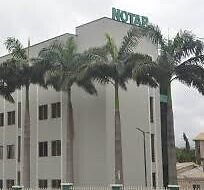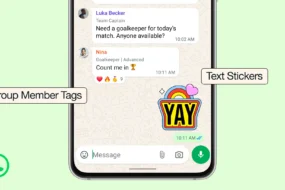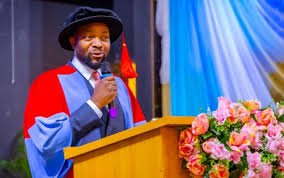The Lagos State Government has taken a major step toward becoming a smarter city by unveiling a digital house numbering system designed to enhance property identification and public service delivery. The project, branded the Lagos Identity Project, was launched in Alausa on Tuesday and is already undergoing a pilot run in Eti-Osa Local Government Area.
With plans to roll out across all 57 LGAs and LCDAs, the new system introduces QR-coded plates embedded with colour codes for each local government. These plates will give stakeholders instant access to building details, from ownership to address history — all by scanning a code.
“This project is about providing Lagosians with world-class services they truly deserve,” said Dr Olajide Babajide, Special Adviser to Governor Babajide Sanwo-Olu on Enterprise GIS, while presenting the initiative.
A Digital Backbone for Public Services and Safety
According to Babajide, the smart address system will help solve issues like tax evasion, rental fraud, and untraceable property locations. It also promises to enhance emergency response, postal services, and urban planning by making property data instantly accessible.
“We’ve had issues ranging from tax evasion to untraceable addresses. This new digital system is the solution,” Babajide added.
The project is a collaboration between Lagos State and tech partner Interspatial, which spent two years mapping the city using aerial technology. Babajide noted that the scheme not only meets global standards for identification but also ensures data protection compliance.
“This isn’t just a project; it’s a legacy that aligns with international benchmarks,” he said, referencing the state’s growing digital reputation recognised by global bodies such as the World Bank.
Lagos: Community-Driven, Security-Focused System
The digital plates will also function as a KYC tool, helping validate addresses for security checks and business verification. According to Mr Yinka Adesiyan, a co-sponsor of the project, this will also aid infrastructure planning, reduce fraud, and simplify public services.
“This project goes beyond house numbers. It makes Lagos safer, smarter, and more transparent,” Adesiyan remarked.
Notably, Ibile Youth have been trained to manage on-the-ground implementation — a move praised for combining data accuracy with local job creation. Babajide also commended the state government’s financial commitment, calling it a sign of serious intent to modernise Lagos’ urban management systems.







2 replies on “Lagos Launches QR-Enabled Address System for Smarter Living”
[…] cities after a seven-month break. The company also opened a new walk-in office on Victoria Island, Lagos, as part of efforts to grow its presence in Nigeria, its biggest market in […]
[…] launch was applauded by Governor Babajide Sanwo-Olu, who was represented by Barr Abimbola Salu-Hundeyin. She described the project as “a platform for […]